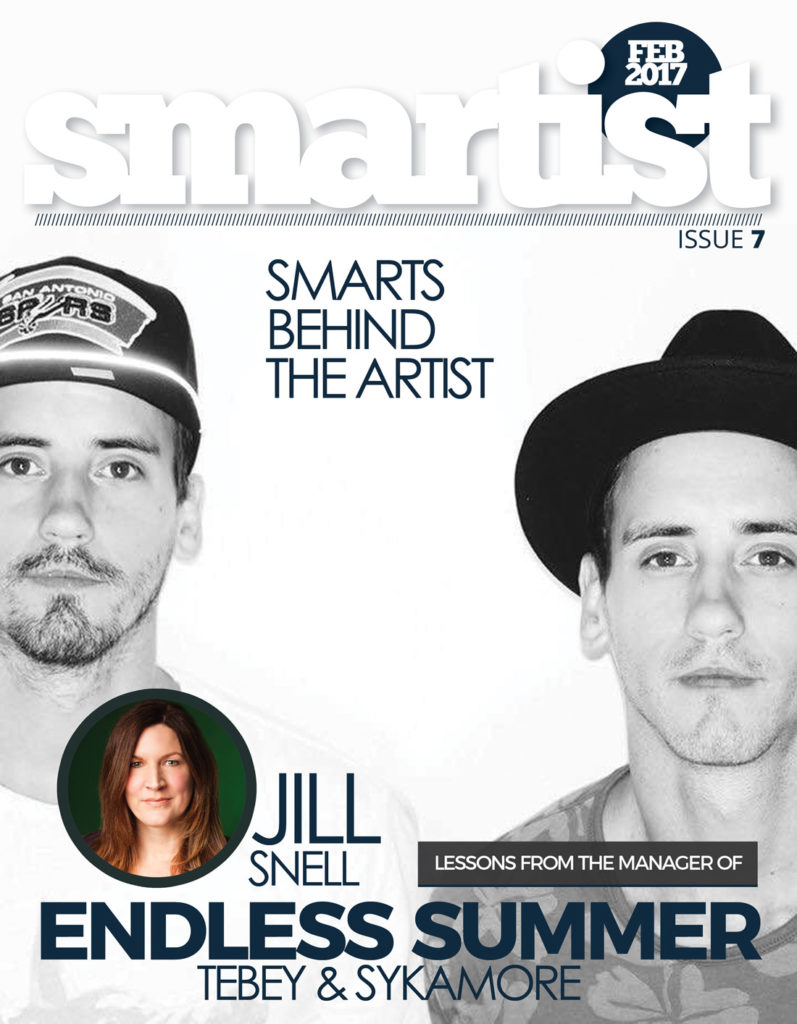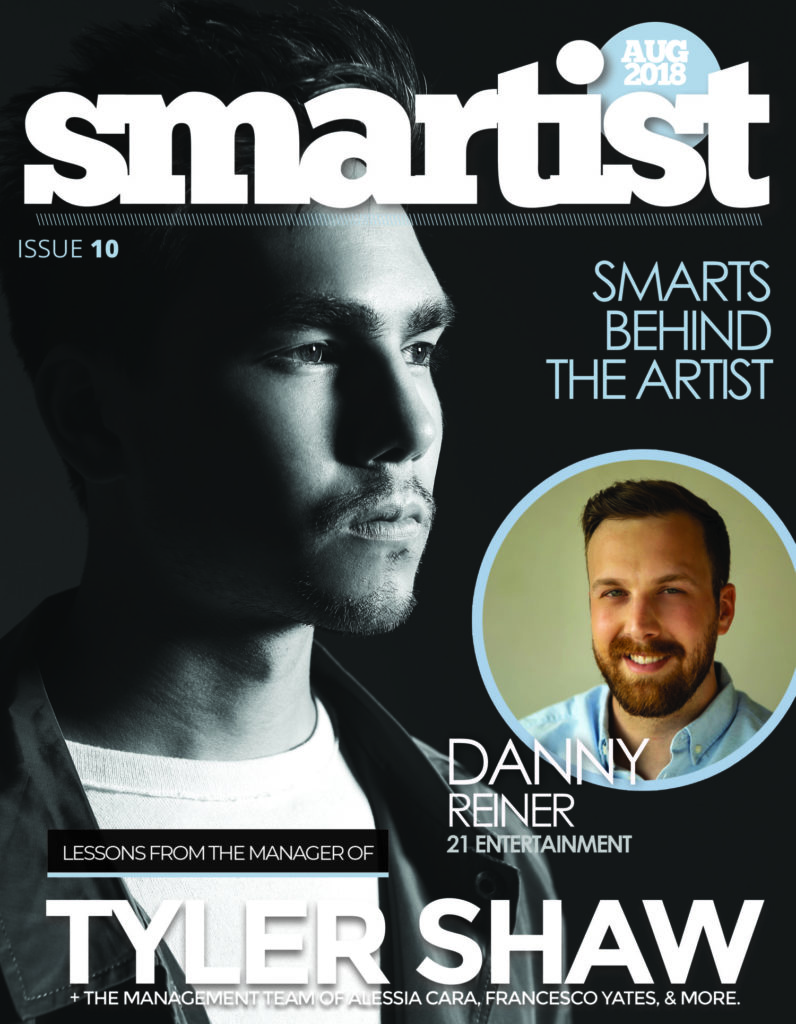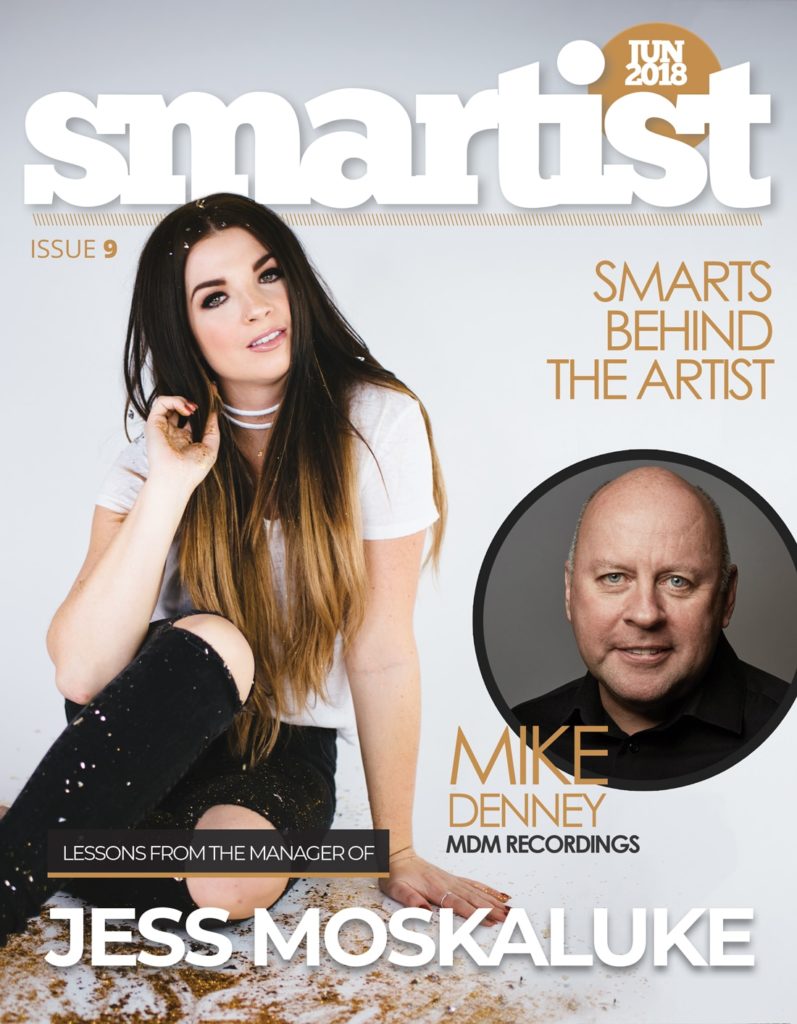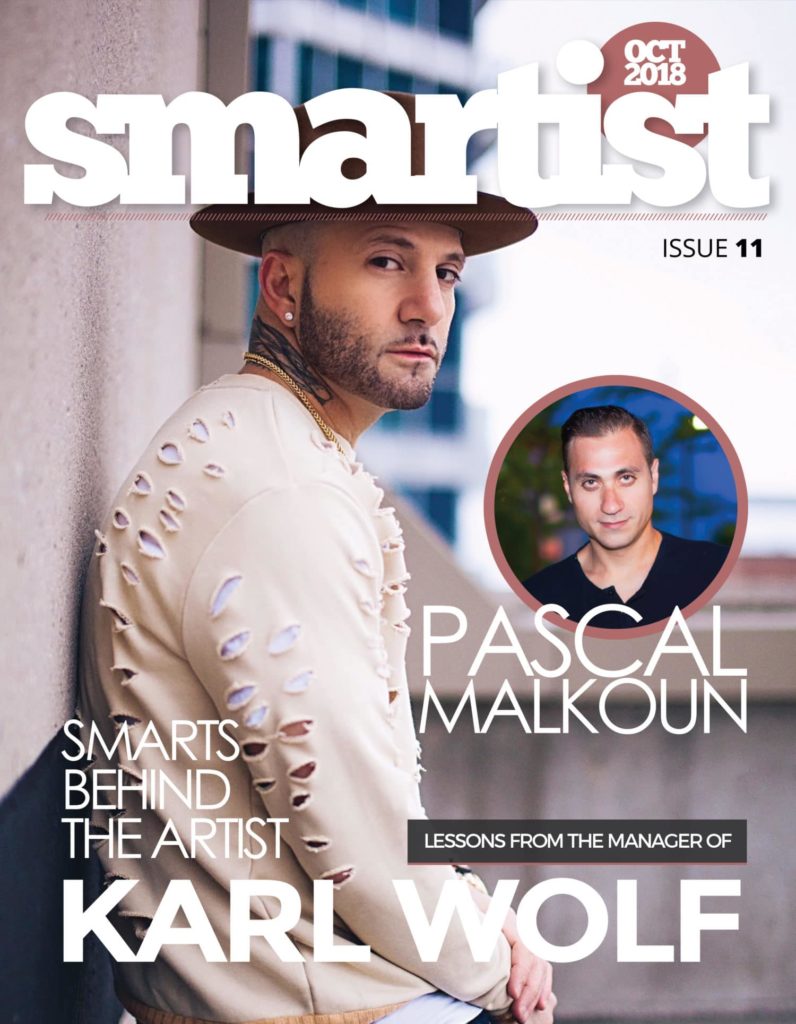Creating a Winning Team to Support Your Artist or Band

As an artist or manager, you’ll likely be working solo and DIY’ing it in the beginning, or for perhaps for a long ass time. But eventually you’re going to want to start building a team around your brand/artist/band to help take that brand to new heights and new fans.
In my opinion, we essentially have 3 different categories of team members that we develop around an artists brand. But before I go into detail, I need to mention that you personally may simply not want a team yet. You may not want a label, or you may not have the money to hire a publicist or other service providers. And on the other hand, these gatekeepers may not be willing to work with you yet. Majority of the time, it’s your best bet to work on your direct-to-fan marketing strategies as much as possible, and keep DIY’ing it, before anyone is ready to work with you, or before you’re ready to work with anyone.
However, you need to learn how to start developing relationships with these people as soon as possible; and you need to understand the team structure before moving forward trying to make a team so let’s dive in.
1. The Core Partner Artist Team
The core partner team are the main 4 business partners that are essentially people/companies who do business on behalf of the artist for a percentage of artist revenues.
These 4 are direct business partners with the artist who invest time and money up front, rather than getting flat fees. These team members each sign on knowing their time and money investments could be a risk, and they may never get a return on their investments. But they each believe in the talent and commercial value of the artist that they decide to sign on as official business partners on a partnership commission.
The main 4 include:
- the manager
- the agent
- the publisher
- the record label (and/or distributor)
Another type of business partner that could technically be included in the core partner team is the promoter. Although promoters are also often compensated with a partnership/commission deal, they’re generally negotiated per tour (and in some cases for one-off shows).
Sometimes the manager is also the record label, and the publisher [known as the 360 deal], which is where you’d sign on to one company that handles all those areas for you under one roof. Sometimes the manager is also the record label and not the publisher. And sometimes the record label is also the publisher. They all work well for some people, and some people don’t agree that the manager should also be the record label and publisher. It’s really up to you what your preferences are. Depending on what opportunities come your way, just make sure you really look at the deals offered in detail, and get an entertainment lawyer to look it over.
And speaking of law. We also have lawyers and accountants that also technically should make up the core team. The major difference is that they don’t work as business partners on a shared revenue structure and instead work on fees, but your core team should also include your Business Manager and/or Accountant (Money Managers), and your go-to entertainment attorney.
2. The Independent Service Provider Team
In the case that you don’t have the main business partners, or are lacking in some areas, you can make up an independent team that resembles the different departments of a record label, and pay fees for services to them. These include:
- An independent publicist
- An independent radio promoter
- An independent streaming promoter
- An independent marketer or digital marketer
- An independent crowd funding project manager or grant writer
- An independent management consultant
- And you can also partner with an independent distributor
Although, the one difference with distributors is that they work on revenue sharing, not on fees. Which is why they can be included in the core partner team as well. Nonetheless, you can hire all these team members, while also still pursuing a record deal. I don’t want you to think that it’s one or the other.
Whether you have a record deal or not, for live performance your independent team will also include:
- Musicians for a fee
- Road crew for a fee
- And eventually a tour manager for a fee
Whether you can afford to hire on these services or not, it’s a good idea to get your feet wet in each area before hiring people to do it. But, if you’d rather delegate right away… then if it’s your first time hiring that service, make sure you are working very closely with them, so that you can deeply understand their roles.
The better you understand their roles the better you can oversee their work and make future strategies. At the same time, the sooner you can hire these services and delegate the work, the more effective you can become as a manager, which is to manage. To oversee, to strategize, and to make deals. Or to play those roles as a self-managed artist.
Either way, you’re always wearing all the hats in some form. It’s more-so a matter of whether you’re physically sitting down and doing the work, or delegating it.
3. The Creative Team
In addition to creating your own pseudo record label and “business team”, you’ll also need to develop the “creative team”. The people who make the music and perform the music in partnership with your artist (or you). The creative team often varies from song to song or album to album or tour to tour, and sometimes artists work with the same or similar creative teams their whole careers.
It’s ok if this is a little overwhelming for you, if you’ve never worked on the creative side or don’t know anyone, as you move forward in your career you’ll start to meet these people. Ask around as much as possible for recommendations as needed, and your artist should hopefully know who they’d like to work with as well.
Songwriting
First, the song would generally start with the publishing company. They connect songwriters and songs to performers. When you’re wearing the publisher hat, you’ll coordinate songwriting sessions with other songwriters, and perhaps pitch those songs to other artists if your artist is interested in having their songs recorded by other artists instead of themselves. Additionally, you’ll build relationships with music supervisors to get your music in film and tv yourself.
Recording
On the recordings side of the creative team, the A&R would usually coordinate:
- Producers
- Engineers
- Musicians
- Mixers
- Masters
- And the studios where the music is made
As well as the creatives on the marketing side who generally help design the artwork and branding around the artist and the recording such as visual artists, graphic designers, and fashion and makeup artists for the photoshoots.
So without a record label, you’ll need to be the one connecting with and coordinating all these elements for the recordings.
Performing & Marketing
On the live performance and marketing purposes side, down the line you may be able to hire a stage director, or live music director who specializes in putting together live shows, but as an independent, some aspects you may need to coordinate yourself along the way may include:
- Musicians
- Sound Technician
- Lighting & Digital Effects
- Wardrobe & Beauty
- Back-up singers
- Back-up dancers
- Photographers
- Videographers
In summary, our artist team members include:
– Managers
– Agents
– Tour Managers
– Record Labels
– Lawyers
– Accountants/Business Managers
– Publishers
– Publicists
– Radio Promoters
– Streaming Promoters
– Digital Marketers
– Crowd Funding & Grant Writers
– Producers
– Musicians
– Engineers
– Mixers
– Masters
– Songwriters
– Studio owners
– Music Supervisors
– Sound Technician
– Lighting & Digital Effects
– Fashion Stylists
– Makeup Artists
– Back-up singers
– Dancers
– Photographers
– Videographers
– Visual Artists
– Graphic Designers
– Etc.
The teams are essentially broken down into 3 different categories. The core team, whom work 24/7 on behalf of the artist in a partnership deal on revenue sharing. The service providers whom are available for hire on flat fees. And the creatives, who help bring the art to life, on fees, per project.
CHALLENGE:
Take a mental note of all the people you possibly know right now in all the following areas. Or, take an actual note, and write all these people down on paper or in an excel sheet. It’s ok if you don’t know many, or even if you already have a large database, it’s good to take note of who you know!
Tell me where you’re at with building your team in the comments below!




HEY AM AN ARTIST FROM ZIMBABWE AND MY COUNTRY S MUSIC INDUSTRY IS NOT THAT MUCH DEVELOPED.I MAKE MUSIC WHICH IS AT INTERNATIONAL STANDARD LEVEL…..I WISH TO TAKE MY CAREER TO ANOTHER LEVEL .CAN YOU HELP ME OUT WITH IDEAS
Hi Bornwell, thanks for your message. We aren’t too sure about how things work in Zimbabwe specifically, but there are definitely universal strategies that work for everyone that we talk about daily. If you haven’t yet, make sure you subscribe to our email list – you also receive 10 free guides and templates instantly. Smartbandmanagement.com/free. Cheers!
Good day, im Golden.
An independent artist in Nigeria, i jst created a team but its not according to your standard.
Your idea of a team brings so many people to the table, how can one cater for all these folks if you are just starting up?
What are the essentials, the neccessary set of people or team members i cant do without while starting up?